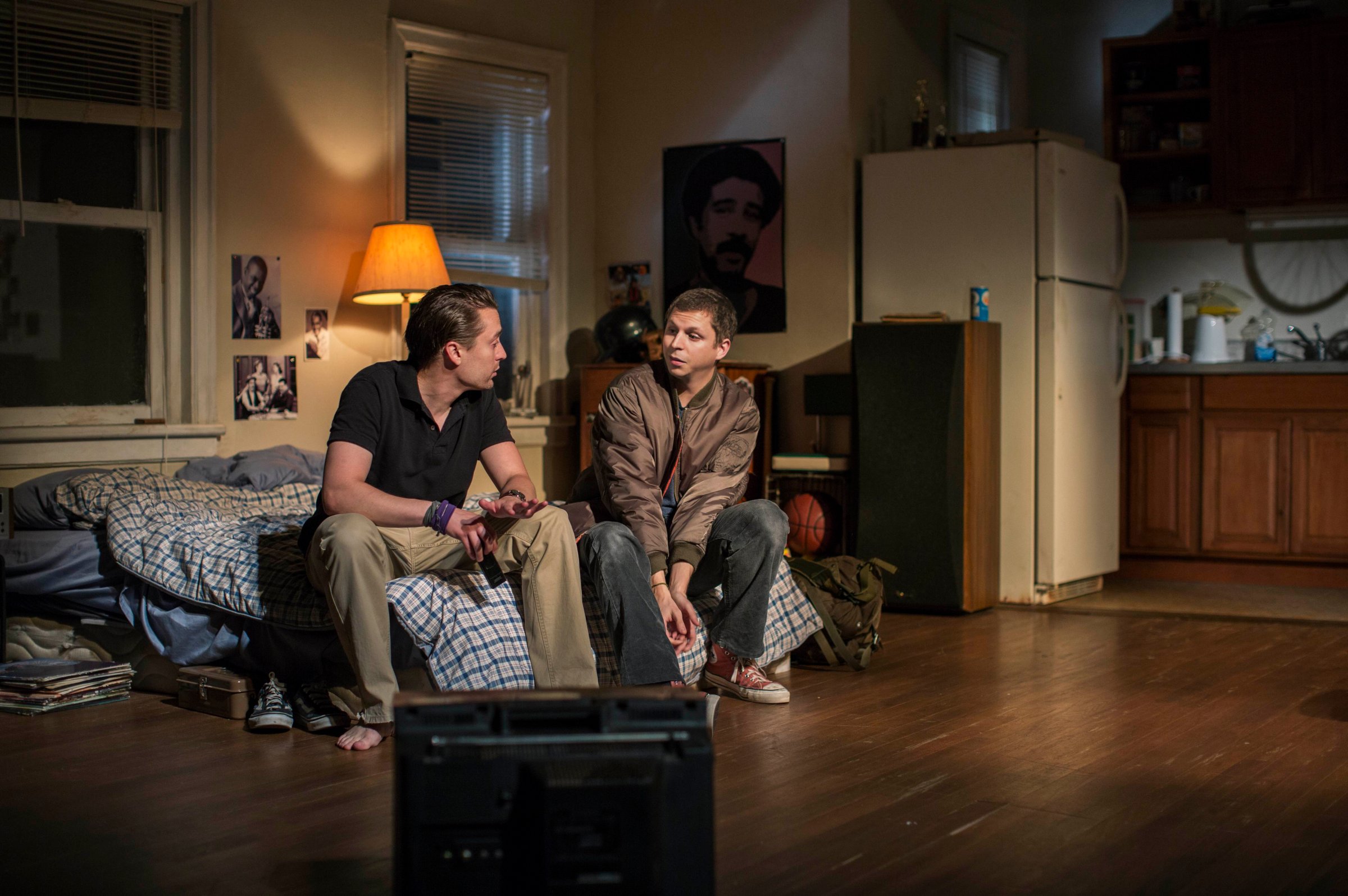
Warren is a f—up. At least, that’s what everybody tells him: his father, a successful, vaguely mob-connected businessman who has just thrown him out of the house; his drug-dealing friend Dennis, on whose doorstep he shows up toting a suitcase filled with $15,000 in cash he has stolen from his dad; most of the girls whom he has had chased after with very little success, as his taunting friend keeps reminding him.
Dennis doesn’t want Warren around: there’s not enough room in his disheveled Manhattan apartment, he’s in the midst of breaking up with his girlfriend, and besides, the bumbling Warren hasn’t been there for 20 minutes before he’s accidentally trashed the place with an errant football. But Warren does offer one intriguing compensation: the $15,000, which Dennis proposes to use to finance a new drug deal — ostensibly to earn back the money Warren has already spent from his father’s stash, but mostly just to prove that Dennis is the baddest dealer in the neighborhood.
Kenneth Lonergan’s 1996 play This Is Our Youth may look, in some superficial ways, like a familiar slacker comedy — though, set in the 1980s, it takes place at least a decade before the term became popular and Judd Apatow had even graduated from film school. But it’s a rarity on Broadway: a rich, rueful and really funny comedy.
The play’s comic engine is the interplay between Dennis and Warren, two rich kids suffering in different ways from their dysfunctional upbringing. The clash between the manic, abusive Dennis and the disaffected, childlike Warren has the contours of a classic comedy team — Abbott and Costello, or Martin and Lewis, or Lane and Broderick. Kieran Culkin, one-third of the starry cast that has brought Lonergan’s off-Broadway success to Broadway, is terrific as Dennis: confident and resourceful onstage, with the hopped-up intensity of a young Al Pacino and a slow burn that Jackie Gleason might envy. Yet he also hints gracefully at the loneliness and insecurity that lies beneath the bluster. It’s a great comic performance.
As Warren (the role originally played off-Broadway by Mark Ruffalo) Michael Cera is less satisfying. His sweetly affectless screen persona (from films like Superbad and Juno) is too puzzling and opaque here. He seems uncertain and tentative in his first Broadway appearance, his arms hanging lifelessly to his side, his voice a blank, high-pitched monotone. Still, he is an ingratiating presence, plays well off Culkin, and at least doesn’t hurt the production.
Tavi Gevinson does. The teenage media mogul (and acting newbie) plays Jessica, the cute girl who shows up, a little implausibly, in Dennis’s apartment and gets it on with Warren. She is too wired and high-pitched — her voice a clenched knot of anxieties, her body pitched forward as if she were a subway commuter trying to catch sight of the E train. Director Anna D. Shapiro (who first staged the show last June at Chicago’s Steppenwolf Theater) may have encouraged this odd take to cover up Gevinson’s uncertainty as an actress. But it throws the play out of whack for the two scenes in which she appears.
Whenever Culkin is onstage, however, This Is Our Youth sails along. Lonergan’s writing is sharp and subtle, suggesting a vivid array of offstage characters (Dennis’s drug connections, the girlfriend he alternately abuses and fawns over on the phone, the thugs who work for Warren’s Tony Soprano-like father) and neatly slipping in bits of sad back-story (Warren had a sister who was murdered) without spoiling the comedy. It’s a lopsided production, but a strong play that looks even better today than it did 18 years ago.
More Must-Reads from TIME
- Where Trump 2.0 Will Differ From 1.0
- How Elon Musk Became a Kingmaker
- The Power—And Limits—of Peer Support
- The 100 Must-Read Books of 2024
- Column: If Optimism Feels Ridiculous Now, Try Hope
- The Future of Climate Action Is Trade Policy
- FX’s Say Nothing Is the Must-Watch Political Thriller of 2024
- Merle Bombardieri Is Helping People Make the Baby Decision
Contact us at letters@time.com